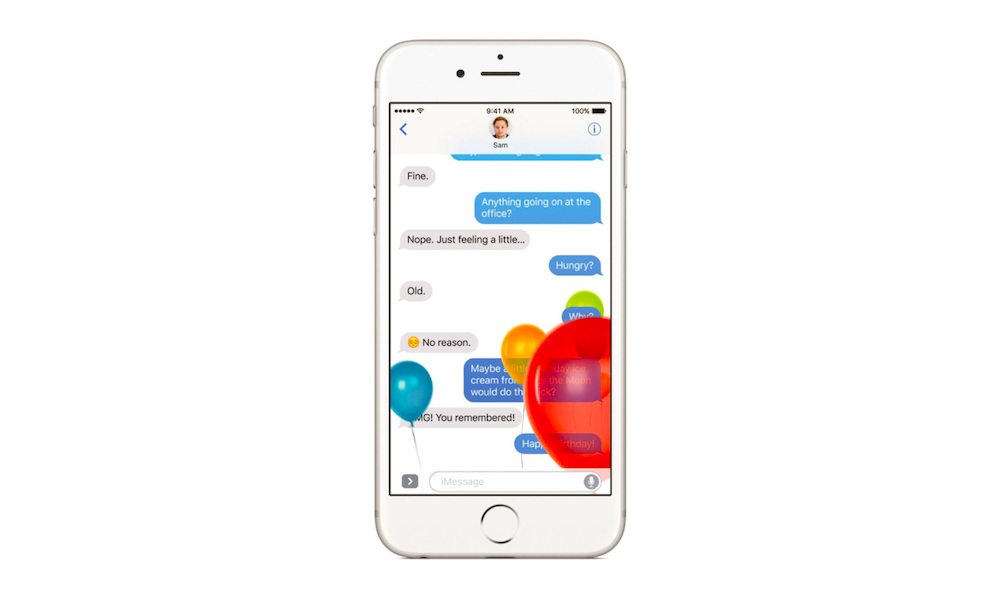Apple’s iMessage Is the Target of Yet Another Lawsuit from Serial Patent Filer, Uniloc

Toggle Dark Mode
Oh boy.. Here we go again! So it seems, Apple’s vast and financially fruitful internet services empire is, yet again, the target of another patent-happy, non-practicing entity with nothing to its name. As if the ridiculous VirnetX case — and also, the subsequent, ludicrous requests that were submitted — weren’t enough, it now appears that Apple’s Messages has emerged as the lone target of another courtroom saga in the making.
“Oh brother! So what’s going on now?” you might be wondering. Well, this time around, the plaintiff in question — a no-product, serial lawsuit filing entity by the name of Uniloc — has filed a complaint alleging that Apple’s Messages platform, and more specifically the company’s iMessage protocol, infringe on “several” of its patents related to IP (internet protocol) services.
Unsurprisingly to us, the Uniloc case was also filed in the Eastern Texas District Court — which is notorious for its tendency to side with patent trolls, large and small. Uniloc claims, in particular, that Apple’s iMessage platform infringes on a total of four of its patents pertaining to an “instant voice messaging system facilitated through VoIP protocols.” According to Uniloc, at issue is the audio transmission component of iMessage — which allows users to send voice clips and audio recordings to their contacts via Apple’s world-renowned communications platform.
iMessage voice and audio clip transmission was first introduced alongside iOS 8 back in 2014, just in case you were wondering.
In any event, citing U.S. Patent Nos. 7,535,890, 8,995,433, 8,724,622 and 8,243,723, Uniloc is alleging that Apple has infringed, across the board, on patents relating to a quote unquote “System and method for instant VoIP messaging.”
For what it’s worth, U.S. Patent No. 7,535,890 was originally granted to a (now defunct) firm by the name of Ayalogic back in 2009. Ayalogic was a digital communications firm that focused on the marketing of P2P voice communications solutions for various gaming platforms. After Ayalogic’c demise, however, licensing of the patent was granted to patent licensing firm, Empire IP.
Uniloc’s other patents, for their part, cover a quote unquote “instant voice messaging system capable of delivering digitized audio files from one user to another via an offsite server.” Apple’s iMessage, as you may or may not know, works in a similar fashion. When users send an iMessage to other iMessage users, the message is routed via one of Apple’s many iCloud servers, prior to being relayed to the end user — who can then listen to the audio message at their discretion.
Let’s take a step back for a second, though — so as to examine this case, and all the claims made therein, from a matter-of-fact perspective, shall we? For starters, much like VirnetX before it, Uniloc is essentially a patent troll with not a single product or service to its name — other than a few pieces of intellectual property, of course. Furthermore, over the past several years, Uniloc has filed over a dozen lawsuits against big-name companies — including gaming-giants Activision Blizzard, Electronic Arts, Sega, and Sony, as well as software firms McAfee, Symantec, and Microsoft, among many others — in the exact same Eastern Texas District Court, mind you.
And therefore, perhaps for obvious reasons, the firm has been at least somewhat successful. Back in 2009, for instance, Uniloc won a whopping $388 million jury verdict against Microsoft. Although that verdict was ultimately overturned (in light of an out-of-court settlement), the patents in question in that case were entirely unrelated to those in question here.
Speaking of the inherent case: Uniloc is apparently seeking “unspecified damages,” in addition to court costs, legal fees, and “miscellaneous relief as deemed fit by the court.”
Yikes. Well, don’t hold your breath, Uniloc — but I suppose we’ll just have to wait and see what happens with this one, too.
What do you think about this case against Apple? Let us know in the comments!






